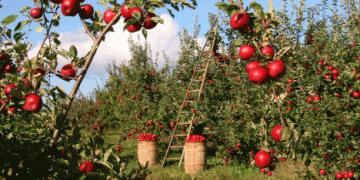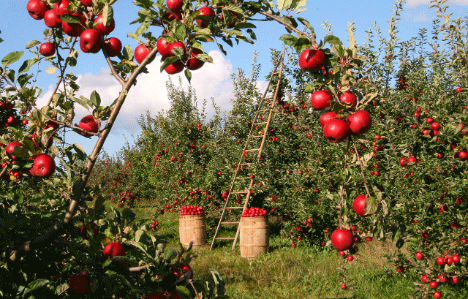In celebration of European Organic Day, Italy has been recognized as the European Union’s leader in organic farming. With 84,000 organic farms, Italy surpasses all other EU countries in this field, boasting more than double the number of farms found in Germany and a third more than in France. This data, provided by Coldiretti and derived from Sinab’s analysis, was shared during the agricultural exhibition in Syracuse, highlighting Italy’s dominance in organic agriculture.
Organic Agriculture Growth in Italy
In 2023, the area dedicated to organic farming in Italy grew by 4.5%, reaching 2.5 million hectares. This represents one-fifth of Italy’s total agricultural land, bringing the country closer to the EU’s ‘Farm to Fork’ strategy goal of having 25% of agricultural land under organic farming by 2030.
This expansion aligns with a broader global trend towards sustainable and organic agriculture, driven by consumer demand for environmentally friendly and health-conscious products. Italy’s organic sector has not only expanded in size but also in market impact, with a 2023 retail value of €3.8 billion for organic products sold through large distribution networks.
Challenges from Rising Organic Imports
Despite this impressive growth, the Italian organic sector faces challenges, primarily from the sharp increase in imports of organic products. According to Coldiretti, organic imports into Italy rose by 40% in 2023, compared to a 9% decline in total organic imports into the EU. Non-EU organic food imports into Italy grew from 177 million kg in 2022 to 248 million kg in 2023, with significant increases in categories such as grains, vegetables, and olive oil.
This surge in imported organic products, particularly grains that are used to make staple items like pasta and bread, has sparked concerns about the authenticity and quality of products labeled as “organic” in Italy. While these imports help meet consumer demand, they also pose a threat to local producers who are committed to high-quality organic farming.
Ensuring Authenticity and Quality in Organic Products
To address the growing challenge of imports and ensure the integrity of Italian organic products, Coldiretti has developed a “Decalogue” with tips for consumers. The first rule is to always check for the presence of the European organic logo (a white leaf on a green background) on product labels, as well as mandatory information for loose products. It’s also crucial to verify that the product is certified by a trusted organic seller.
Furthermore, Coldiretti emphasizes the importance of confirming the Italian origin of organic products. The country of origin should be clearly displayed under the organic logo on the packaging. Choosing locally grown organic products ensures that the items are not only produced within Italy but also fresh and seasonal, reducing the environmental footprint associated with long-distance transportation.
Italy’s leadership in organic farming is a testament to the country’s dedication to sustainable agriculture and high-quality food production. While the sector is thriving, with 84,000 organic farms and significant growth in organic land, the rising imports of organic products from outside the EU represent a challenge that Italian farmers and consumers must navigate. Supporting locally produced organic goods and ensuring the authenticity of these products will be key to maintaining Italy’s position at the forefront of organic agriculture in Europe.































